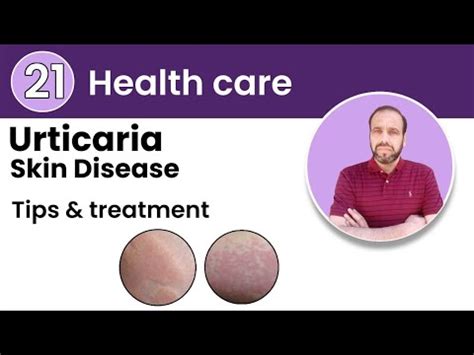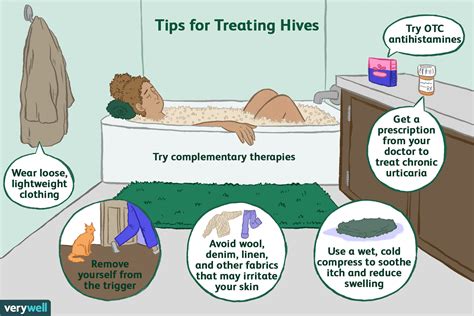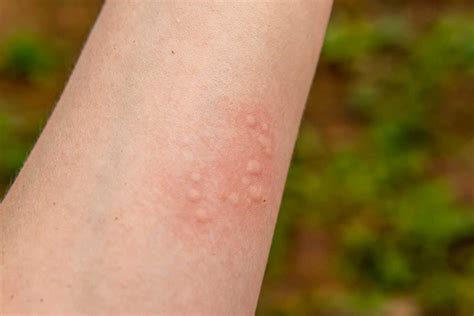Intro
Discover 5 effective ways to treat urticaria rash, alleviating hives, itching, and inflammation with natural remedies, medication, and lifestyle changes, providing relief from chronic and acute symptoms.
Urticaria, commonly known as hives, is a skin condition characterized by the appearance of red, itchy, and elevated patches on the skin. These patches can be small and round or large and irregularly shaped, and they can appear anywhere on the body. Urticaria is often caused by an allergic reaction, but it can also be triggered by other factors such as stress, infection, or certain medications. The condition can be acute or chronic, with acute urticaria lasting less than six weeks and chronic urticaria lasting more than six weeks. If you are experiencing urticaria, it is essential to understand the condition and the available treatment options to manage the symptoms effectively.
Urticaria can significantly impact a person's quality of life, causing discomfort, anxiety, and embarrassment. The itchy and uncomfortable nature of the rash can disrupt daily activities, sleep, and social interactions. Moreover, the unpredictability of urticaria outbreaks can lead to stress and anxiety, making it crucial to find effective ways to manage the condition. Fortunately, there are various treatment options available to alleviate the symptoms of urticaria, ranging from lifestyle modifications to medical interventions.
The importance of understanding urticaria and its treatment options cannot be overstated. By recognizing the causes and symptoms of the condition, individuals can take proactive steps to prevent outbreaks and manage their symptoms effectively. Furthermore, being aware of the available treatment options can empower individuals to make informed decisions about their care, ensuring that they receive the most effective treatment for their specific needs. In this article, we will explore five ways to treat urticaria rash, providing a comprehensive overview of the condition and its management.
Understanding Urticaria

Causes of Urticaria
The causes of urticaria can be broadly categorized into allergic and non-allergic factors. Allergic reactions to foods, medications, insect bites, or other substances can trigger urticaria. Non-allergic factors, such as stress, infection, or hormonal changes, can also contribute to the development of urticaria. In some cases, the exact cause of urticaria may be unclear, making it essential to work with a healthcare professional to determine the underlying triggers.Treatment Options for Urticaria

- Antihistamines: Antihistamines are the first line of treatment for urticaria, as they can help relieve itching, reduce the size of the hives, and prevent new hives from forming. There are two types of antihistamines: sedating and non-sedating. Sedating antihistamines, such as diphenhydramine, can cause drowsiness, while non-sedating antihistamines, such as loratadine, are less likely to cause drowsiness.
- Corticosteroids: Corticosteroids, such as prednisone, can be prescribed for short-term use to reduce inflammation and swelling. However, long-term use of corticosteroids can have significant side effects, such as weight gain, mood changes, and increased risk of infections.
- Immunosuppressants: Immunosuppressants, such as cyclosporine, can be used to treat chronic urticaria that is resistant to other treatments. These medications work by suppressing the immune system, which can help reduce inflammation and prevent hives from forming.
- Lifestyle Modifications: Making lifestyle modifications, such as avoiding triggers, managing stress, and maintaining a healthy diet, can help alleviate symptoms of urticaria. Avoiding known allergens, such as certain foods or medications, can help prevent future outbreaks.
- Alternative Therapies: Alternative therapies, such as acupuncture, herbal supplements, and stress management techniques, may be helpful in managing urticaria symptoms. However, it is essential to consult with a healthcare professional before using any alternative therapies, as they may interact with other medications or have side effects.
Benefits of Treatment
The benefits of treating urticaria are numerous, including relief from itching and discomfort, prevention of future outbreaks, and improvement in quality of life. Effective treatment can also reduce anxiety and stress associated with the condition, allowing individuals to engage in daily activities and social interactions without discomfort or embarrassment.Managing Urticaria Symptoms

- Avoid scratching or rubbing the affected area, as this can cause further irritation and inflammation.
- Apply cool compresses or calamine lotion to the affected area to reduce itching and discomfort.
- Wear loose, comfortable clothing to reduce irritation and prevent scratching.
- Avoid exposure to extreme temperatures, such as hot or cold water, which can trigger urticaria.
- Practice stress management techniques, such as meditation, deep breathing, or yoga, to reduce stress and anxiety.
Preventing Future Outbreaks
Preventing future outbreaks of urticaria requires identifying and avoiding triggers, maintaining a healthy lifestyle, and working with a healthcare professional to develop a personalized treatment plan. Here are some tips for preventing future outbreaks:- Keep a symptom journal to track when outbreaks occur and potential triggers.
- Avoid known allergens, such as certain foods or medications.
- Maintain a healthy diet, rich in fruits, vegetables, and whole grains.
- Stay hydrated by drinking plenty of water.
- Manage stress and anxiety through relaxation techniques, such as meditation or deep breathing.
Conclusion and Next Steps

We invite you to share your experiences and questions about urticaria in the comments section below. Have you found any effective treatments or lifestyle modifications that have helped manage your symptoms? What are your concerns or questions about urticaria? By sharing your thoughts and engaging with others, we can create a supportive community that promotes awareness and understanding of this condition.
What are the common causes of urticaria?
+Urticaria can be caused by allergic reactions to foods, medications, insect bites, or other substances. Non-allergic factors, such as stress, infection, or hormonal changes, can also contribute to the development of urticaria.
How can I manage urticaria symptoms?
+Managing urticaria symptoms requires a comprehensive approach that incorporates lifestyle modifications, medical interventions, and stress management techniques. Avoid scratching or rubbing the affected area, apply cool compresses or calamine lotion, and practice stress management techniques, such as meditation or deep breathing.
Can urticaria be prevented?
+Preventing future outbreaks of urticaria requires identifying and avoiding triggers, maintaining a healthy lifestyle, and working with a healthcare professional to develop a personalized treatment plan. Keep a symptom journal, avoid known allergens, and maintain a healthy diet to reduce the risk of future outbreaks.
